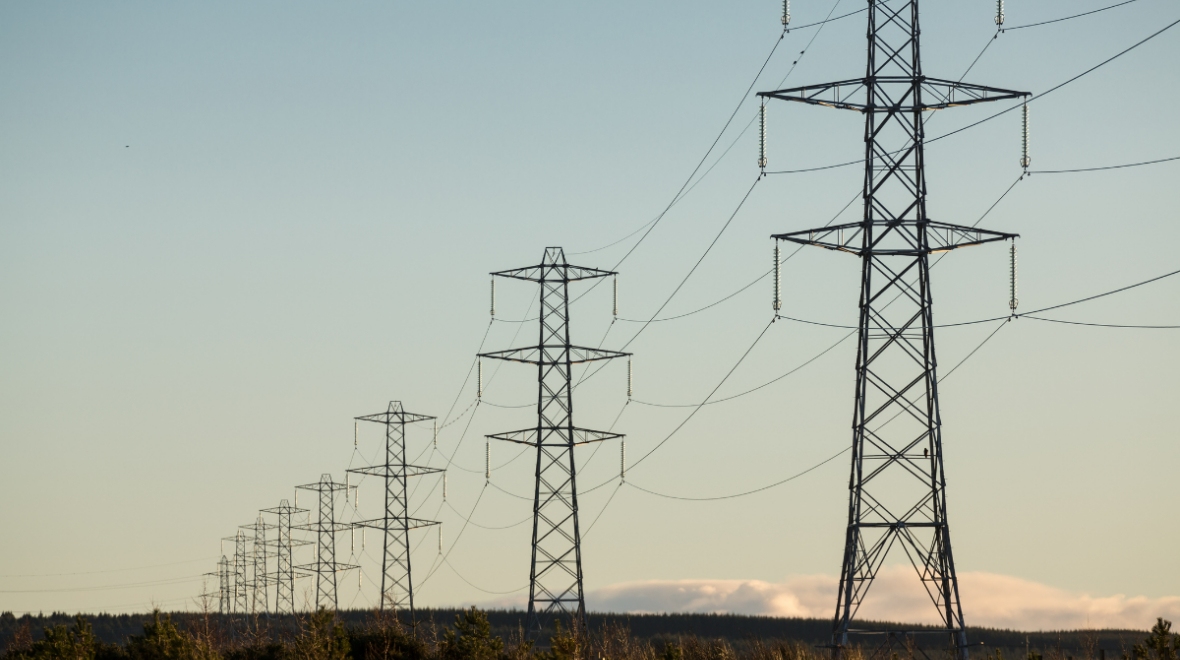Families living near new pylons would get a £125 discount on their energy bills every six months for a decade under Government plans to get electricity infrastructure built.
New transmission cables and pylons are needed across Britain to upgrade ageing electricity networks, connect up new wind and solar farms, nuclear power plants and large scale battery storage, and reinforce the grid to cope with the planned rise in electric heat pumps and car charging in homes.
The Government says around twice as much new transmission network infrastructure will be needed by 2030 as has been built in the past decade.
But building new pylons and cables through the British countryside has faced a backlash, with homeowners and campaigners concerned about the visual impact and disruption to local areas and beauty spots.
The Government has pledged to deliver clean energy by 2030, as part of efforts to boost the economy, cut climate emissions and reduce Britain’s exposure to volatile fossil fuel prices.
It hopes cash benefits to local people will reduce opposition and planning delays to the infrastructure needed to deliver the clean energy plans.
The launch of the consultation comes alongside reforms which place new obligations on energy companies to improve smart meters, and improving connectivity across Scotland and northern England including rolling out 4G services to allow more households to benefit from getting meters installed.
The Department of Energy Security and Net Zero is launching a consultation into proposals included in the Planning and Infrastructure Bill to provide payments to households affected by the new developments.
Households within 500 metres (a third of a mile) of new or upgraded electricity transmission infrastructure could receive a discount of up to £250 via their electricity bill every year for 10 years, totalling £2,500.
The discounts, which would be assigned to the home, and applied to the occupant, could be provided in instalments of £125 every six months.
Minister for energy consumers Miatta Fahnbulleh said: “As we build the infrastructure we need to deliver homegrown, affordable energy, communities must be given a stake.
“That is why we are teaming up with communities hosting new pylons to ensure they receive direct, tangible benefits.
“We are on the side of those who want Britain to get back to what it does best: building for the future, driving innovation and putting communities first.”
Labour also accused opposition parties of backing higher energy bills by demanding cables be buried underground rather than attached to pylons.
Describing this as “ideological opposition” to pylons, the party pointed to analysis from the National Energy System Operator suggesting it would cost billions more and could raise household bills by up to £850.
A Labour spokesperson said: “Ideological opposition to vital energy infrastructure projects holds back our economy and pushes bills higher. Yet that is what Reform, the Tories, Lib Dems and Greens are doing when they oppose the infrastructure needed to get energy into people’s homes and businesses.”
Shadow energy minister Andrew Bowie said it was “right that communities get some payback for pylons – with this scheme following initiatives started by the last Conservative government”.
But he added that the public should “be in no doubt” that more communities would see pylons built nearby “as a consequence of Labour’s net zero by 2050 zealotry”.
Bowie said the Government was now having to “scramble to try and build the infrastructure needed to support their mad green projects” and urged more investment in nuclear power rather than solar.
Proposals to improve smart meters from Ofgem, which are set to be introduced next year, include requirements to cut times for installation appointments and to fix meters that have stopped working in smart mode within 90 days – or provide consumers with automatic compensation.
Officials said the measures would help households get lower bills through better management of their energy use and access to more flexible tariffs, such as paying less to use power off-peak or benefiting from free electricity offers when excess power is available on the grid.
Charlotte Friel, director of retail pricing and systems at Ofgem, said: “Millions of consumers rely on their smart meter every day for accurate billing, cheaper tariffs, automatic meter readings and real-time data to help keep track of spending.
“But we know many customers that want a smart meter wait too long to get one installed or face delays on repairs when it stops working – this needs to change.
“These new rules are about setting clear expectations of suppliers, incentivising them to boost smart meter standards, and protecting consumers from poor service if things go wrong.”
Follow STV News on WhatsApp
Scan the QR code on your mobile device for all the latest news from around the country


 iStock
iStock

























